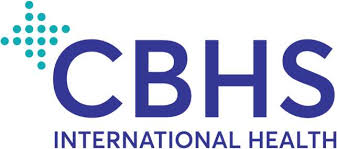 Allianz Care Australia
Allianz Care Australia
 CBHS International Health
CBHS International Health
We asked chartered accountant and tax expert Marianna Agostino, director of Conscious Wealth Creation, for advice on how private health insurance could affect how much you pay (or get back from) the ATO.

How the Medicare Levy Surcharge affects your tax return
According to Marianna, the biggest mistake people make is taking out health insurance at the end of the financial year to try and avoid paying the Medicare Levy Surcharge. This is an extra charge you must pay if you don’t hold Hospital Cover and earn more than $97,000 as a single person or more than $194,001 as a couple, single parent or family from July 1, 2024 onwards.
“The Medicare Levy Surcharge (MLS) is calculated based on your adjusted taxable income at the end of the financial year. If you are required to pay the MLS you will need to pay the surcharge for the days that you did not hold the policy,” she explains. “So, if your income jumps during the year and you take out a policy mid-year you will only avoid the MLS for the period that you held a qualifying private health insurance hospital cover.”
For the 2025/26 financial year, the MLS thresholds have increased. For that tax period, if you earn more than $101,000 as a single, or more than $202,000 as a couple, single parent or family, you’ll incur the MLS.
Work out whether you have to pay the Medicare Levy Surcharge.
The other common mistake people make, she says, is not considering how their partner’s income will impact their requirement to pay the MLS – especially in a new relationship.
“MLS is calculated based on the couple or family’s income so if one spouse’s income was less than $97,000 for the 2024/25 financial year but when they marry or enter into a domestic partnership their combined income exceeds $194,000, they are required to pay MLS,” says Marianna.
It’s important to remember that the MLS is not tested on your net taxable income, but on your adjusted taxable income which includes fringe benefits and investment losses, Marianna points out.
“I would recommend people speak to their accountant about their requirement to pay MLS,” she says, “especially if your income has or will change significantly.”
Tip
Be careful not to get the Medicare Levy Surcharge confused with the Medicare Levy, which is a separate levy at tax time that almost everyone has to pay. “Most Australian taxpayers will pay the 2% Medicare Levy, but only those who earn over the MLS threshold are required to also pay the MLS based on their income tier,” says Marianna.
Claiming the Private Health Insurance Rebate at tax time
If you’re eligible for the Private Health Insurance Rebate (sometimes called the Government Rebate), it means you’ll pay less for your health insurance in the form of cheaper premiums during the year, or you can claim back a rebate from the ATO at tax time. You’re eligible for the Private Health Insurance Rebate if you earn under $151,001 as a single person, or under $302,001 as a couple, single parent or family for the 2024/25 financial year (or for the 2025/26 financial year: under $158,000 as a single and under $316,000 for a couple, single parent or family). The amount you’ll save depends on your age and number of dependant children.
Am I eligible for the Private Health Insurance Rebate?
It doesn’t make any financial difference whether you claim the Rebate at tax time or claim it as reduced premiums throughout the year, says Marianna, so choose whichever option is best for you. Given the cost-of-living climate, you may prefer to choose a reduced premium to give you a little extra cashflow each month.
“Either way there will be an adjustment on your tax return,” she says. “You can either have a happy surprise at the end of the financial year – by paying a higher premium throughout the year – or make sure your insurer has your correct income tier so that your Rebate is correct.”
Want to save money on health insurance?
Whether you want private health insurance to avoid paying the Medicare Levy Surcharge next financial year, or simply to get access to private hospital treatments and services, make sure you’re not paying too much for your policy. Find the cheapest health insurance policy that meets your needs using our Calculator, or compare your existing policy to other similar policies on the market with our Comparison Calculator. Our healthslips.com.au Calculator is the only one that compares every policy from every insurer, unlike other sites that only offer policies they have commercial arrangements with. It’s free to use and we won’t ask for your contact details.

Knowledge is power – that’s the guiding principle behind everything Trudie writes, and it’s a philosophy she brings to her work at healthslips.com.au. By breaking down complex information into easy-to-understand blogs and stories, she aims to empower Australians to make the best choices and an informed decision around private health insurance.
Trudie understands firsthand some of the complexity of private health insurance having moved to Australia from New Zealand and having to navigate a vastly different public healthcare system and health insurance structure.
Trudie holds a Bachelor of Communication Studies (journalism major) from the Auckland University of Technology.
Policies change monthly, stay informed
- Insurers regularly update policies, introduce new policies and close policies. Our data is updated monthly.
- We will only send information relevant to you. You can unsubscribe at any time. See our Privacy Policy.





